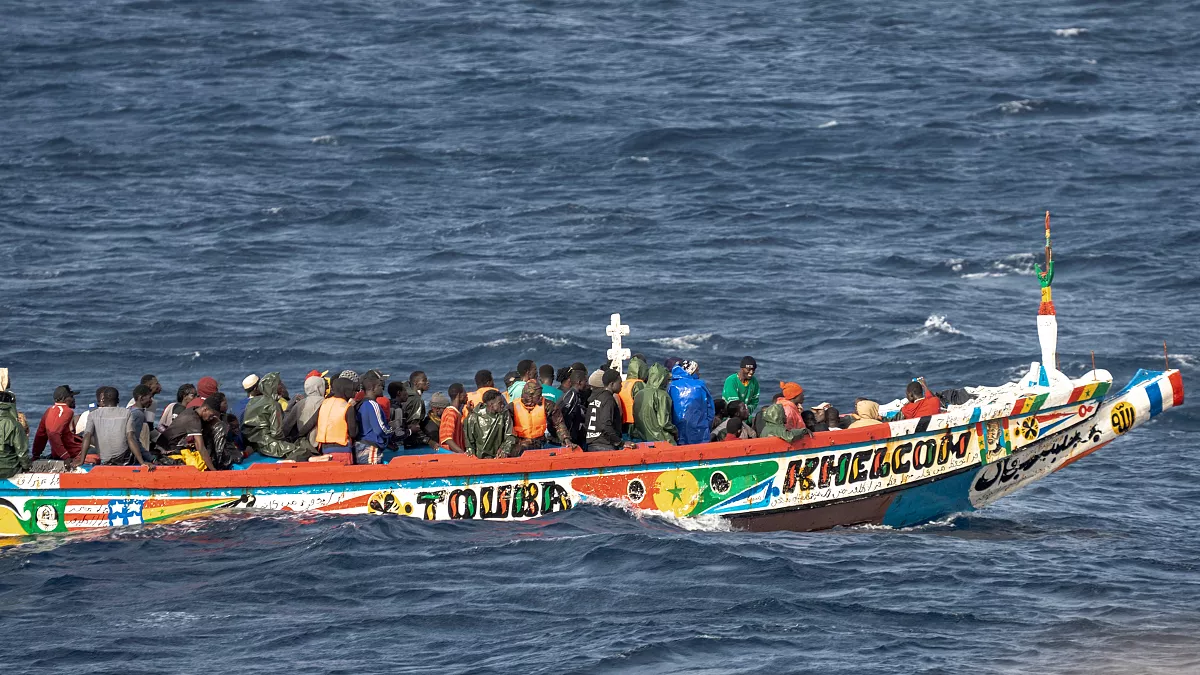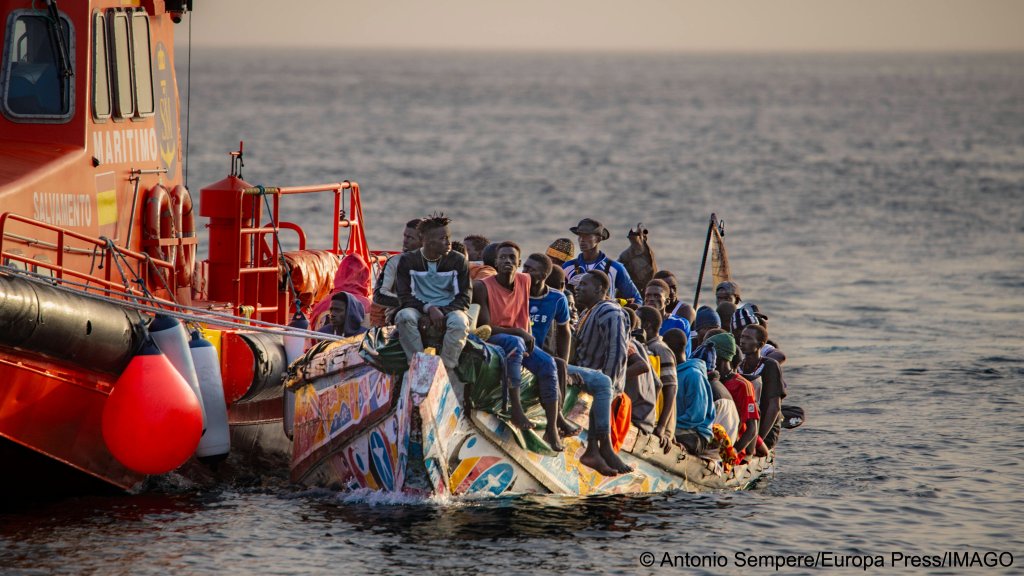A record number of 46,843 people reached the Canary Islands illegally in 2024, making the increasingly perilous Atlantic route the choice for migrants seeking to reach Europe. This marks the second consecutive year of unprecedented arrival numbers, according to official data.
Spain recorded 63,970 irregular migrants last year, with the majority arriving in the Canaries, up from 56,852 in 2023, the Interior Ministry reported on Thursday.
As tighter controls in the Mediterranean have forced more migrants to attempt the dangerous journey from West Africa to the Canary Islands, Spain has become a focal point of the EU’s ongoing migration crisis.
The EU’s border agency, Frontex, reported that while irregular crossings into the bloc from January to November 2024 fell by 40% overall, the number of crossings on the Atlantic route increased by 19%. The most common nationalities of those attempting the journey came from Mali, Senegal, and Morocco.

The figures released on Thursday confirmed data from December, showing that the Canary Islands had again set a record for annual migrant arrivals by boat, marking the second consecutive year with record-breaking numbers in November.
Last year’s arrivals surpassed the 39,910 migrants who reached the islands by sea in 2023, far exceeding the previous record of 2006. However, the 2024 figure for Spain as a whole remained below the all-time high of 64,298 arrivals in 2018.
A report released last week by the NGO Caminando Fronteras stated that at least 10,457 migrants died or went missing while trying to reach Spain by sea between January 1 and December 5, 2024.
The NGO reported that this death toll represented a 50% increase over 2023 and was the highest recorded since it began tracking such incidents in 2007. It attributed the rise in fatalities to the use of makeshift boats, dangerous sea conditions, and a lack of resources available to rescuers.


